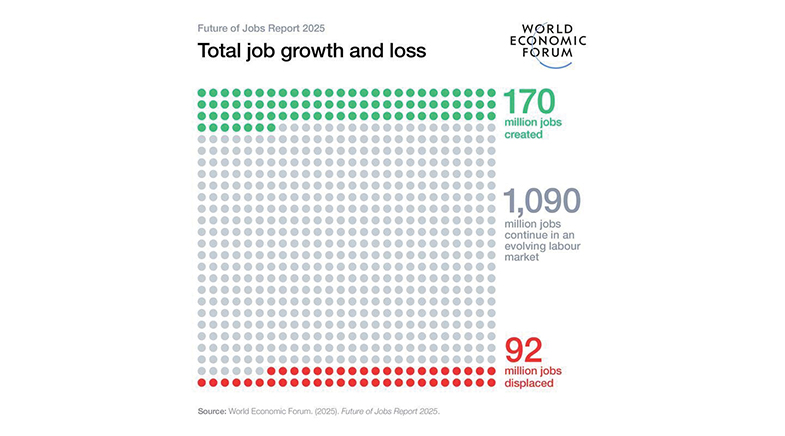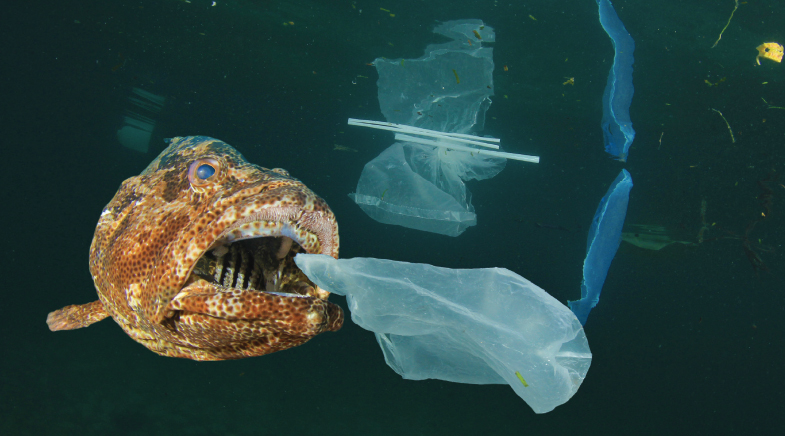The fat in your genes
-
- from Shaastra :: vol 03 issue 09 :: Oct 2024

Geneticist Giles Yeo on the science of obesity, and why precision nutrition is the key to healthy eating.
Much has been said about eating right. For American-British geneticist Giles Yeo, however, there are risks to running ahead of the science. Professor of Molecular Neuroendocrinology and programme leader at the MRC Metabolic Diseases Unit at the University of Cambridge, Yeo is interested in studying the brain's control of food intake and body weight, and how these might be dysregulated in obesity. As a broadcaster and an author, he is committed to educating people on healthy eating. In his podcast, Dr Giles Yeo Chews the Fat, and in his books – Gene Eating: The Science of Obesity and the Truth About Dieting and Why Calories Don't Count: How We Got the Science of Weight Loss Wrong – he debunks myths surrounding food intake. Excerpts from an interview:
Genetics or willpower: which is more important for weight loss?
The genetics of body weight is, by definition, the genetics of how our brain influences our feeding behaviour. What does feeding behaviour mean? (It's about) why, where, how much, and what we eat. Some people find it more difficult to say no to food than others, because of a multitude of biological, social and cultural drivers.
When you talk about willpower – the ability to say no to food – yes, there are elements of how you were brought up, are you rich or poor, are you a parent, those kinds of questions… but equally, there are questions about your underlying genes that are making it more difficult for you to say no to the pizza in front of you.
"How much fat you carry (is a function of) genes, but the diseases you get for carrying that fat have regional ethnic differences."
If our genes make us eat more, how can we manage our weight?
If I had the answer, I'd be very rich. There are a couple of things. How obese you are makes a difference. People who are 200-300 kg are clearly going to need some form of extreme intervention – surgery, for example. Someone like me can lose 5-10 kg relatively easily: my wife tells me I need to. But no one is going to give me a drug. I will have to make behavioural changes. But there are a lot of people in between (for whom) it's going to be a mix of drugs and behavioural interventions.
Say I want to lose 10 kg. What do I do? You have to control the environment that you can control, which is your own home. But, first, you have to be honest about why you eat. I am a stress eater. I put my face into a bowl of noodles or rice the moment I get stressed. If you know that, can you come up with something else to do other than eat? It may be difficult, but at least you're thinking about it. So, first, you need to understand why you eat.
How effective are GLP-1 drugs for weight loss if the changes aren't lasting? Are they just a quick fix?
These drugs are not small interventions: they make you lose quite a lot of weight. Second, it is a drug, which means it only works when it's in use.
If we frame obesity as a chronic relapsing disease, there is an acceptance that you have to treat it over the long term. Does this mean the drugs need to be given forever for everybody? Some people are likely going to be on it for long. For others, however, is there the opportunity to boost the weight loss first, and then come up with some behavioural change? I don't know the answer yet.
Implied in your question is that the drugs do not fix the root cause of obesity. They don't. The root cause of obesity tends to be a poor diet. Poor diet can come from a number of things: in the U.K., a root cause of it is poverty. The lower down the socio-economic ladder you go in the U.K., you're more than twice likely to end up with obesity. Processed foods are cheaper. So, by fixing poverty, you halve the rates of obesity. A drug is not going to fix that. Improving our diet requires different effects: education, policy change, investment in food industry, lobbying.
Is all obesity bad?
The clinical definition of obesity is BMI (body mass index) above 30, but that's just a number, and it was derived from white people. I think obesity should be more nuanced; a more useful definition of obesity is carrying too much fat that it begins to influence your health.
The question is: how much fat is too much? South Asian people like you, and East Asian people like me, don't have to be that large to get diseased compared to white people. In New Zealand, indigenous Polynesians, the Maori, could have twice the BMI before they reach the same risk of diabetes as someone who is South Asian. African Americans get more cardiovascular diseases. If you're an Ashkenazi Jew, you have another set of diseases. How much fat you carry (is a function of) genes, but the diseases you get for carrying that fat have regional ethnic differences.
The more we understand the changes in the genes that increase or decrease your risk of certain diseases, the better.
"Precision nutrition has to be the goal. The more we work in this field, we begin to understand that one size definitely does not fit all."
What are your thoughts on precision nutrition?
That's where we're going to get to. We're not there yet – and there are a couple of reasons why. To match genetic information to a trait, you need two things: you need numbers – the more, the better – because then you can take away individual genetic noise; and you need a clean measure that is not subject to imagination or opinion. Body weight is an example. It's free to measure.
Now, something that is subject to body weight is food intake; it's quite difficult to measure it at scale. You can do it within a lab setting, but you want to know what happens in the wild, at home. Measuring that is difficult for now. I think the technology is going to be there for us to harness. The moment we have a better way of measuring that, we can apply genetics. That is when we can get to personalised nutrition.
Many companies claim to be able to do that. I think they're running ahead of the science. They are very good at measuring your genetic information. Many of these companies fundamentally misunderstand the difference between population-level risk and individual diagnosis. You need to study over a hundred thousand people to get to the average. (Let's say) the risk that you get this is 27%. What does 27% mean for the individual? A lot of these direct-to-consumer genetic tests don't get that nuance. Then you get the individual worrying: "Oh my god, I have that gene. It means I'm going to be obese, run faster, breathe better, or something." That's simply not true. It means that if I took a million of you, then you have a 27% chance to have that disease versus not.

In precision nutrition, there's gene testing, blood markers, and microbiome interventions. Can altering your microbiome curb snack cravings?
People ask me if microbiome is a good science or a bad science. I think microbiome is a new science. There (are) a lot of overstatements about microbiome. We need a healthy microbiome to be healthy. I think an easy proxy for healthy is variety. The more different types of bugs you have in you, the better. I think it is a wonderful reflection of your health, and your environment… what you eat, what illnesses you have, and where you live. Does this mean that if someone has obesity, will he or she have a different microbiome? The answer is almost certainly yes. Anywhere beyond that, however – "does it drive a disease?", "does it cure disease?" – is unknown.
But does this mean that the microbiome is not important? Of course not. The microbiome is hugely important. If you put that out of balance, you're going to end up with some kind of illness. I bet you we will get some predictive things from it. But at the moment, there's so much hysteria. People are running ahead of the science.
And is it harmful to run ahead of the science? I think it is. If you're misinterpreting the data, if something goes wrong, you need to understand the fundamental biology of the system in order to fix it. If you don't understand it, that could be harmful. And if you go far ahead of science before we can do anything about it, and people lose confidence in biology, no one will listen to you.
Which areas in nutrition research are you excited about?
Precision nutrition. Actually, precision anything – precision drugs, precision diets – but precision nutrition, in particular, has to be the goal. The more we work in this field, we begin to understand that one size definitely does not fit all.
The exciting bit to head us towards precision is going to be better tech for us to measure what we're eating so that we can link it to the genetics. It's very difficult to measure, but once we get a good measure of it, we can apply genetics and unpack the biology underlying very specific traits. The genetics bit, we can now do very well, at scale, and the price will go down more.
See also:
Have a
story idea?
Tell us.
Do you have a recent research paper or an idea for a science/technology-themed article that you'd like to tell us about?
GET IN TOUCH














